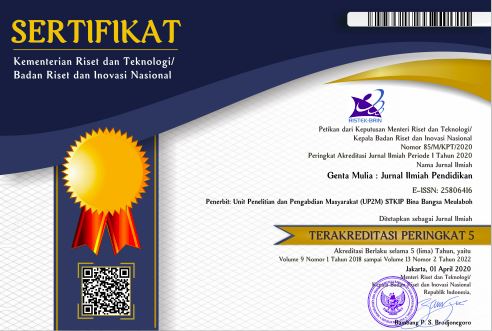IMPLEMENTASI STRATEGI PEMBELAJARAN JIGSAW DI SMP 8 PAB SAMPALI PADA MATA PELAJARAN PAI KELAS VII
DOI:
https://doi.org/10.61290/gm.v15i2.1204Keywords:
Implementation, Learning Strategy, JigsawAbstract
This research focuses on the implementation of the Jigsaw learning strategy in the context of Islamic Jurisprudence (Fiqih) education in the seventh-grade class at SMP 8 PAB Sampali. The objective of the study is to gain a deep understanding of how this strategy influences student interactions, their participation in learning, and its impact on their understanding of Fiqih material. The research methodology adopts a qualitative approach with a phenomenological framework. Data were collected through classroom observations, interviews with students, and document analysis. The observation results indicate that the implementation of the Jigsaw strategy triggers a significant increase in student engagement. Students appear more enthusiastic, actively communicating, and collaborating within their groups. Furthermore, the strategy enhances students' confidence in presenting the material in front of the class.
Despite its advantages, the research also identifies some challenges, such as time constraints that may hinder the overall implementation of the Jigsaw strategy. Students also expressed difficulties in deeply understanding the material and feeling embarrassed when presenting information in front of their peers. Student opinions gathered through interviews depict mixed feelings about the Jigsaw strategy. Some students appreciate the group-based approach that allows them to interact and exchange information. However, some students face challenges in comprehending the material and feel uncomfortable during presentations in front of their peers. In conclusion, the Jigsaw learning strategy offers positive potential for enhancing student interactions, engagement, and confidence in learning Fiqih. Although some challenges were identified, improvement efforts and adjustments can enhance the effectiveness of this strategy. The implications of this research emphasize the need for careful planning and effective teacher support to ensure the successful implementation of the Jigsaw strategy in the context of Fiqih education at the junior high school level.






